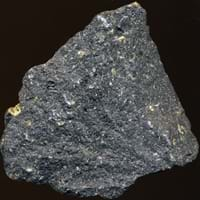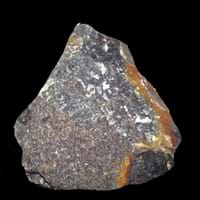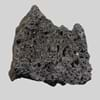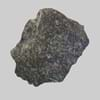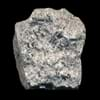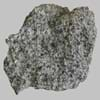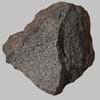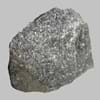Definition
Basalt is a common extrusive igneous rock formed by the rapid cooling of basaltic lava exposed at or very near the surface of Earth
Dolomite is a sedimentary rock containing more than 50 percent of the mineral dolomite by weight
Origin
Egypt
Southern Alps, France
Discoverer
Georgius Agricola
Dolomieu
Etymology
From Late Latin Basaltes (variant of basanites ), very hard stone, which was imported from Ancient Greek Basanites
From French, from the name of Dolomieu (1750–1801), the French geologist who discovered the rock
Class
Igneous Rocks
Sedimentary Rocks
Sub-Class
Durable Rock, Medium Hardness Rock
Durable Rock, Medium Hardness Rock
Group
Volcanic
Not Applicable
Other Categories
Fine Grained Rock, Opaque Rock
Coarse Grained Rock, Fine Grained Rock, Medium Grained Rock, Opaque Rock
Texture
Glassy, Massive, Porphyritic, Scoriaceous, Vesicular
Earthy
Color
Black, Brown, Light to Dark Grey
Black, Brown, Colourless, Green, Grey, Pink, White
Durability
Durable
Durable
Scratch Resistant
Yes
Yes
Appearance
Dull and Soft
Glassy or Pearly
Interior Uses
Floor Tiles, Homes, Hotels, Kitchens
Decorative Aggregates, Homes, Interior Decoration
Exterior Uses
As Building Stone, Paving Stone, Garden Decoration, Office Buildings
Garden Decoration, Office Buildings
Other Architectural Uses
Curbing, Whetstones
Not Yet Used
Construction Industry
Arrowheads, As Dimension Stone, Cobblestones, Cutting Tool, Rail Track Ballast, Roadstone
As a Flux in the Production of Steel and Pig Iron, As a Sintering Agent in Steel Industry to process Iron Ore, As Dimension Stone, Cement Manufacture, for Road Aggregate, Making natural cement, Manufacture of Magnesium and Dolomite Refractories, Production of Glass and Ceramics, Serves as an Oil and Gas Reservoir rock
Medical Industry
Not Yet Used
Taken as a Supplement for Calcium or Magnesium
Antiquity Uses
Artifacts, Monuments
Artifacts, Jewellery, Monuments, Sculpture, Small Figurines
Commercial Uses
An Oil and Gas Reservoir, Commemorative Tablets, Creating Artwork, Used in aquariums
An Oil and Gas Reservoir, As a Feed Additive for Livestock, Gemstone, Metallurgical Flux, Production of Lime, Soil Conditioner, Source of Magnesia (MgO)
Types
Alkaline Basalt, Boninite, High Alumina Basalt, Mid Ocean Ridge Basalt (MORB), Tholeiitic Basalt, Basaltic trachyandesite, Mugearite and Shoshonite
Boninite and Jasperoid
Features
Has High structural resistance against erosion and climate, Very fine grained rock
Host Rock for Lead, Traps for subsurface fluids like Oil and Natural Gas., Zinc and Copper Deposits
Archaeological Significance
Famous Monuments
Easter Island in the Polynesian Triangle, Pacific Ocean, Gateway of India in Mumbai, India, Gol Gumbaz in Karnataka, India
Data Not Available
Famous Sculptures
Data Not Available
Data Not Available
Formation
Basalt forms when lava reaches the Earth's surface near an active volcano. The temperature of lava is between 1100 to 1250° C when it gets to the surface.
Dolomite rocks are originally deposited as calcite or aragonite rich limestone, but during diagenesis process, the calcite or aragonite is transformed into dolomite.
Mineral Content
Olivine, Plagioclase, Pyroxene
Clay Minerals, Pyrite, Quartz, Sulfides
Compound Content
Aluminium Oxide, CaO, Iron(III) Oxide, FeO, Potassium Oxide, MgO, MnO, Sodium Oxide, Phosphorus Pentoxide, Silicon Dioxide, Titanium Dioxide
NaCl, CaO, Carbon Dioxide, Magnesium Carbonate, MgO
Types of Metamorphism
Contact Metamorphism
Burial Metamorphism, Cataclastic Metamorphism, Contact Metamorphism
Types of Weathering
Biological Weathering
Not Applicable
Types of Erosion
Not Available
Not Applicable
Grain Size
Fine Grained
Medium to Fine Coarse Grained
Fracture
Conchoidal
Conchoidal
Streak
White to Grey
White
Porosity
Less Porous
Less Porous
Luster
Not Available
Vitreous and Pearly
Cleavage
Not Available
Perfect
Specific Gravity
2.8-3
2.8-3
Transparency
Opaque
Transparent to Translucent
Density
2.9-3.1 g/cm3
2.8-2.9 g/cm3
Resistance
Heat Resistant, Pressure Resistant, Wear Resistant
Heat Resistant, Pressure Resistant, Wear Resistant
Deposits in Eastern Continents
Asia
India, Russia
China, India
Africa
South Africa
Morocco, Namibia
Europe
Iceland
Austria, Italy, Romania, Spain, Switzerland
Others
Not Yet Found
Not Yet Found
Deposits in Western Continents
North America
Canada, USA
Mexico, USA
South America
Brazil
Brazil, Colombia
Deposits in Oceania Continent
Australia
Not Yet Found
New South Wales, Queensland, Yorke Peninsula
All about Basalt and Dolomite Properties
Know all about Basalt and Dolomite properties here. All properties of rocks are important as they define the type of rock and its application. Basalt belongs to Igneous Rocks while Dolomite belongs to Sedimentary Rocks.Texture of Basalt is Glassy, Massive, Porphyritic, Scoriaceous, Vesicular whereas that of Dolomite is Earthy. Basalt appears Dull and Soft and Dolomite appears Glassy or Pearly. The luster of Basalt is not available while that of Dolomite is vitreous and pearly. Basalt is available in black, brown, light to dark grey colors whereas Dolomite is available in black, brown, colourless, green, grey, pink, white colors. The commercial uses of Basalt are an oil and gas reservoir, commemorative tablets, creating artwork, used in aquariums and that of Dolomite are an oil and gas reservoir, as a feed additive for livestock, gemstone, metallurgical flux, production of lime, soil conditioner, source of magnesia (mgo).
